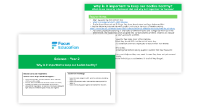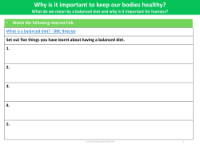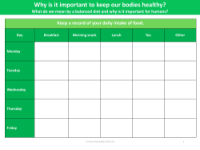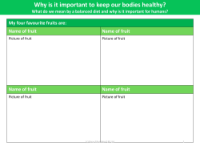What do we mean by a balanced diet and why is it important for humans? - Presentation
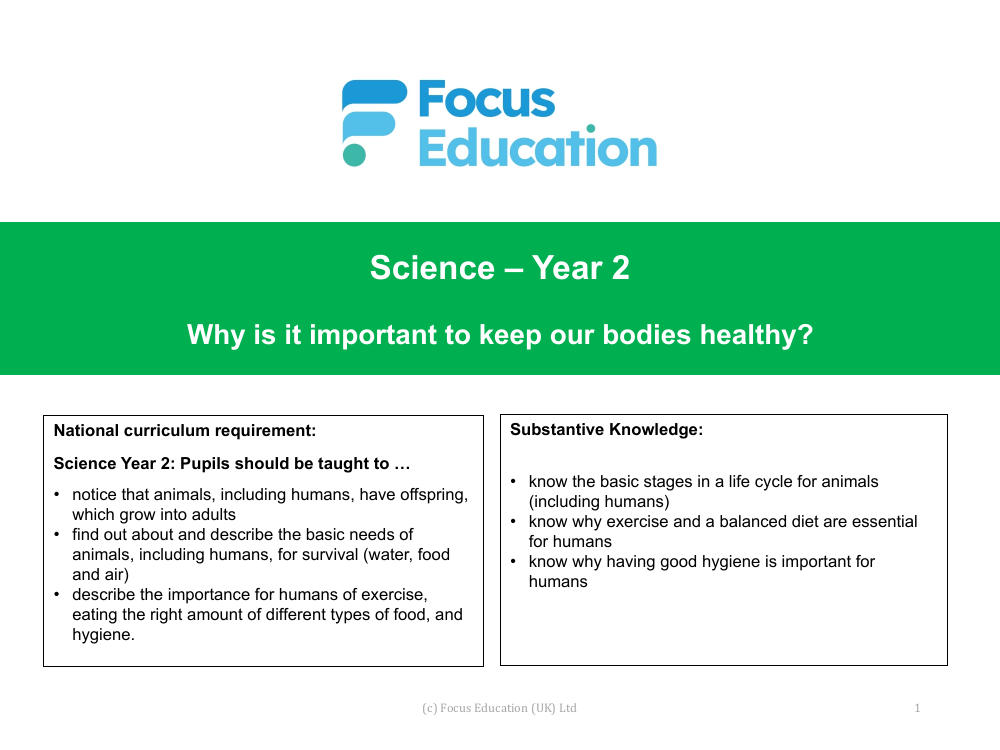
Science Resource Description
A balanced diet is fundamental to maintaining good health and well-being. It involves eating the right quantities and proportions of different types of food, which provide the body with essential nutrients. These nutrients include proteins, found in foods like meat, eggs, and nuts; carbohydrates, sourced from starchy vegetables, grains, and bread; and fats, which are in animal products such as butter and cheese. Consuming a variety of these food groups ensures that the body gets the necessary energy, as well as the building blocks for growth and repair. Additionally, maintaining good nutrition helps to prevent diseases, keeps the body hydrated, aids digestion, and contributes to overall physical and mental health.
For Year 2 students, understanding the importance of a balanced diet is part of their science curriculum, which also emphasizes the need for regular exercise and good hygiene. These elements are crucial for their growth and development from childhood into adulthood. The curriculum encourages children to explore these concepts through practical activities, such as categorizing different foods, keeping a daily food intake chart, and discussing the significance of eating five portions of fruit and vegetables each day. By learning about the benefits of a balanced diet, such as increased energy, better brain function, and a healthier digestive system, children are equipped with the knowledge to make informed choices about their eating habits from a young age.
